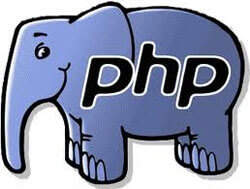Change the PHP Query String Variable Separator Using php.ini
As you probably know, the default PHP query string variable separator is the "&" character. One annoyance with using the "&" character is that, in order to have valid XHTML syntax, you need to output your &'s as "&". If you'd like to avoid all of that mess, you can simply change the separating character to a semi-colon (;). Here's how:
The PHP
//inside the php.ini file
arg_separator.input = ";"
//example URL: /page.php?key1=value1;key2=value2;key3=value3
There you go -- one easy step to outputting cleaner URLs. Do any of you use this method?
![Designing for Simplicity]()
Before we get started, it's worth me spending a brief moment introducing myself to you. My name is Mark (or @integralist if Twitter happens to be your communication tool of choice) and I currently work for BBC News in London England as a principal engineer/tech...
![6 Things You Didn’t Know About Firefox OS]()
Firefox OS is all over the tech news and for good reason: Mozilla's finally given web developers the platform that they need to create apps the way they've been creating them for years -- with CSS, HTML, and JavaScript. Firefox OS has been rapidly improving...
![MooTools Overlay Plugin]()
Overlays have become a big part of modern websites; we can probably attribute that to the numerous lightboxes that use them. I've found a ton of overlay code snippets out there but none of them satisfy my taste in code. Many of them are...
![Image Data URIs with PHP]()
If you troll page markup like me, you've no doubt seen the use of data URI's within image src attributes. Instead of providing a traditional address to the image, the image file data is base64-encoded and stuffed within the src attribute. Doing so saves...





Personally I set it to & which validates fine.
and if you don’t have access to the ini file the following works:
ini_set('arg_separator.output','&');pretty useful
Didnt know this one, thx ;)
And how Search engines see on this trick?
@wsr: Search engine sees it as the same — you wouldn’t be penalized by this.
@david: Maybe, but standart is “&” and many SE use this symbol to explode and analyze query string…
I think this will break a 3rd party CMS(like wordpress).
Think SEO
If you really want to display pretty URLs it’s better to use mod_rewrite.
Keep in mind that XML invalidates the & symbol when it’s located in the href tag.
To validate your XML you have to supply & EG: href=”?i=1&x=2″
When using this method the return value in the URI will return as “&”, and if you are using relative URLs in your application navigation, this will invalidate the DOM generated XML in most browsers and stop page load in Google Chrome (Safari).
Result: href=”/mypage.php?i=1&x=2″
Returns – EntityRef: expecting ‘;’
To fix the above the first example href=”?i=1&x=2″ should read with &
like so
href=”?i=1&x=2″